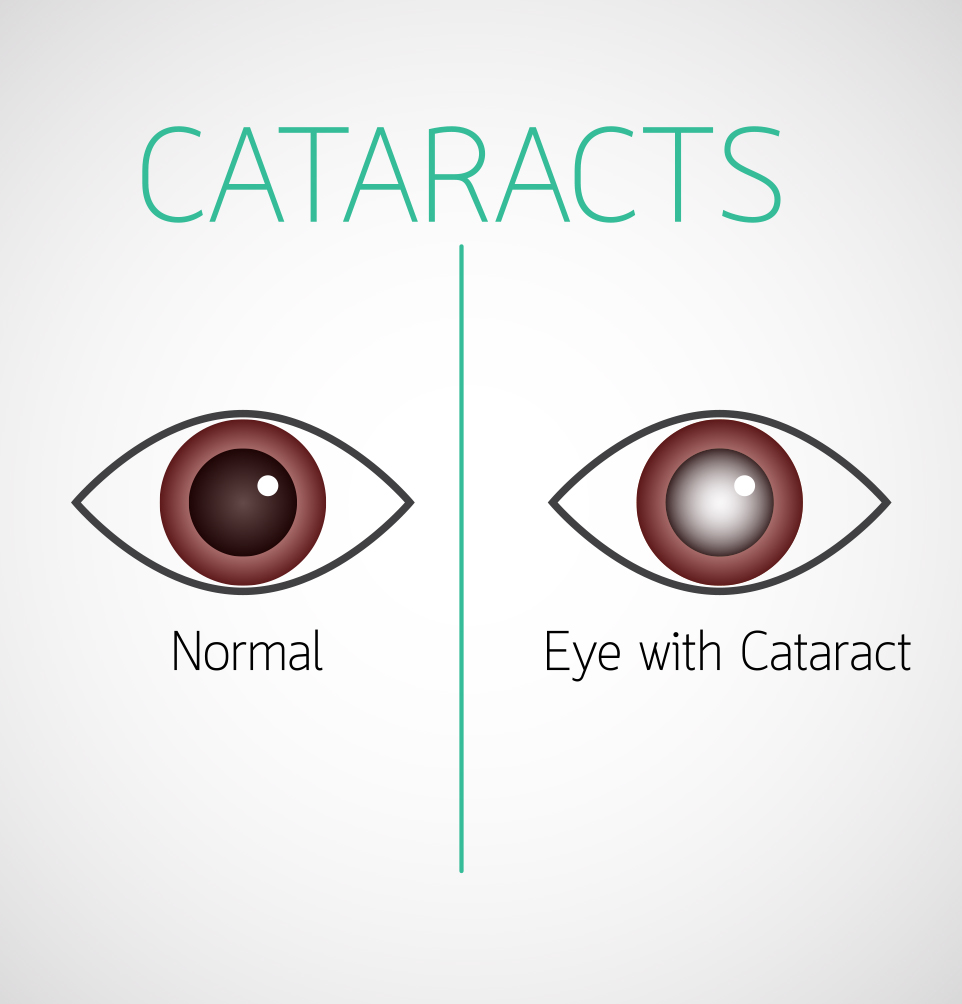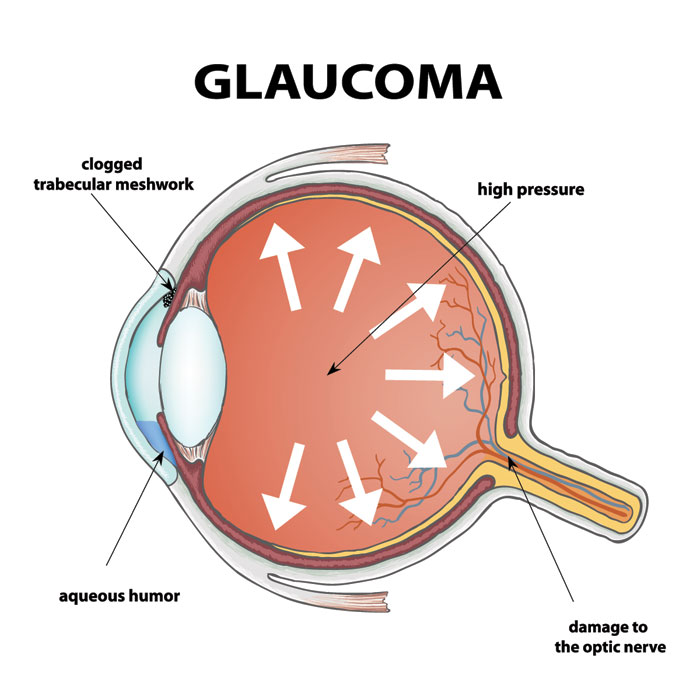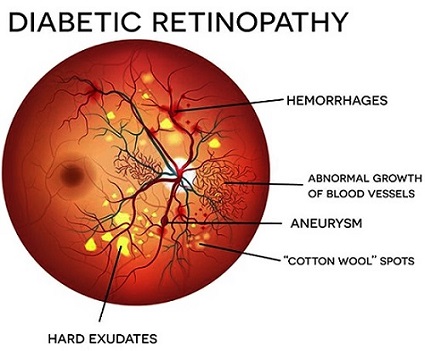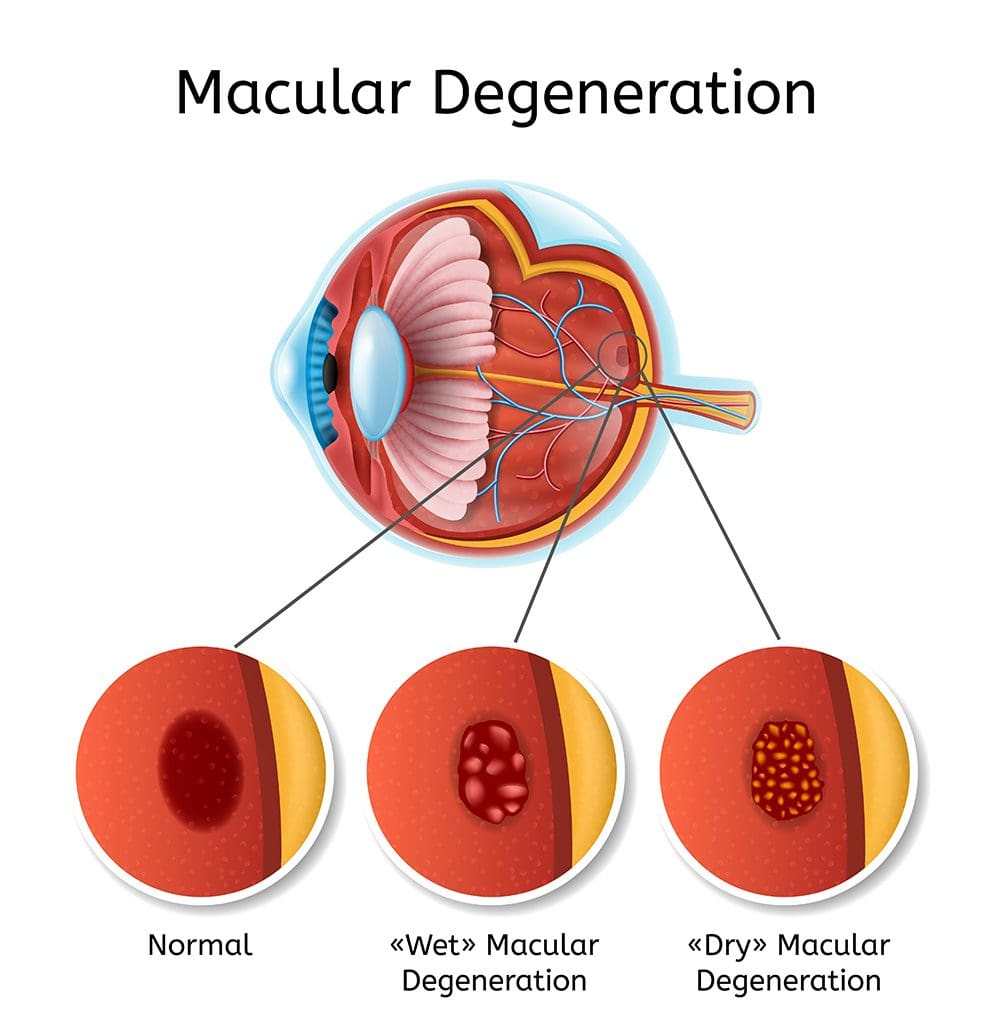


A comprehensive eye exam offers us a complete picture of your eye health. Certain eye diseases and conditions can develop without presenting symptoms, so it’s essential to schedule routine eye exams to prevent future vision problems. Our comprehensive eye exams allow us to dive deep into your overall visual health. We can detect new or ongoing eye conditions using our advanced equipment and provide customized treatment that suits your lifestyle. As associates of Coastal Eye Associates, we work closely with ophthalmology subspecialists and will work with you to schedule any necessary referrals.
Almost everyone develops cataracts since its primary cause is inevitable: aging. Symptoms of cataracts include blurred or foggy vision, light sensitivity, and seeing halos around lights.
Cataracts form within the lens, which is responsible for focusing light that enters the iris. As we age, the lens becomes more rigid, and tissues harden and form clumps, causing opaque spots.
If you are concerned you may have cataracts, schedule a comprehensive exam to allow us to evaluate your lens and determine if cataract surgery is indicated. If so, we will work with you to recommend a cataract surgeon you are comfortable with as well as discuss surgical options to consider prior to seeing the surgeon.

Glaucoma is an eye condition that affects the optic nerve. It causes high pressure in your eye and can progress without showing symptoms.
As one of the leading cause of blindness in people over 60, glaucoma testing can potentially save your eyesight. An eye exam is the only way to detect glaucoma before it progresses into vision loss that can’t be repaired.
Glaucoma screening is done on all patients during a comprehensive eye exam. Glaucoma treatment often starts with eye drops but if surgery is indicated, we will work with you to schedule a follow-up appointment with a glaucoma sub-specialist.

Diabetic Retinopathy is an eye condition that can develop among patients with diabetes (type 1 and type 2). When the bloodstream has elevated glucose levels, the blood vessels in the eyes can swell and leak into the retina.
There are 4 stages of diabetic retinopathy that increase in severity as the condition progresses. A diabetic eye exam is recommended for patients with diabetes to test for diabetic retinopathy, so we can detect it in its early stages before it progresses. If diabetic retinopathy is detected, we will work closely with your primary care physician to be certain you have necessary follow-up care as well as recommending a retina specialist who can provide any necessary treatment.

Age-Related Macular Degeneration(AMD) affects the macula, a tiny but crucial part of the eye in the center of the retina. Early symptoms often don’t appear, but later, symptoms of AMD can blur your central vision, making it harder to see details.
The two primary types of age-related macular degeneration have different causes:
If your eyes show signs of AMD, we will keep close track of how it progresses. Scientists continue to study AMD and new treatments have become available for both the wet and dry forms of the condition. South Shore Eye Center works closely with retina specialists who treat macular degeneration and we will work closely with you to provide you with a referral to a sub-specialist is treatment becomes necessary.

South Shore Eye Center offers emergency services in order to treat eye care issues that require immediate attention. The following are symptoms that may indicate you are in need of immediate medical attention for an eye condition or injury:
If you are experiencing any of these eye conditions, please call our office and we will do our best to get you seen as soon as possible. If you are unable to reach us, we urge you to seek treatment at an urgent care or emergency facility that provides 24/7 care.